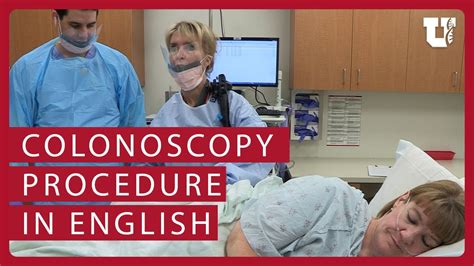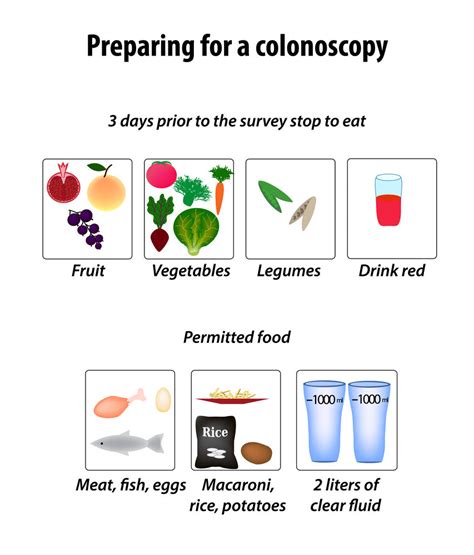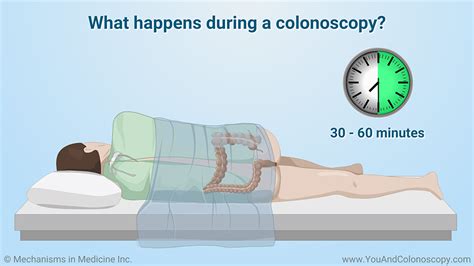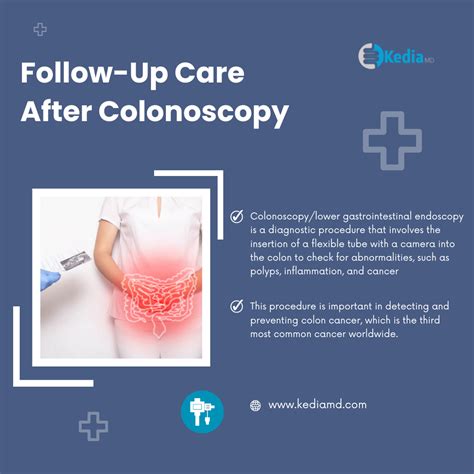Intro
Prepare for a colonoscopy with our expert guide, covering colonoscopy prep, bowel prep, and colon cleanse methods to ensure a successful procedure and accurate results, reducing colon cancer risks.
Colonoscopy is a vital medical procedure that helps doctors diagnose and prevent colon cancer, as well as detect other gastrointestinal issues. As a significant number of colon cancer cases are diagnosed at an advanced stage, undergoing a colonoscopy can be a lifesaver. However, the preparation process for a colonoscopy can be daunting, and many people may feel anxious or overwhelmed. In this article, we will guide you through the importance of colonoscopy, the preparation process, and what to expect during and after the procedure.
A colonoscopy is a preventive measure that allows doctors to examine the inside of the colon and rectum for any abnormalities, such as polyps or cancerous growths. The procedure involves inserting a flexible tube with a camera and light on the end into the rectum, which provides a clear view of the colon and rectum. By removing any detected polyps or abnormal tissue, doctors can prevent colon cancer from developing. Moreover, a colonoscopy can help diagnose other gastrointestinal issues, such as diverticulitis, inflammatory bowel disease, and gastrointestinal bleeding.
The importance of colonoscopy cannot be overstated. According to the American Cancer Society, colon cancer is the third most common type of cancer in the United States, with over 100,000 new cases diagnosed each year. However, with regular colonoscopies, the mortality rate from colon cancer can be significantly reduced. In fact, studies have shown that colonoscopy can reduce the risk of colon cancer by up to 90%. Therefore, it is crucial to undergo a colonoscopy as recommended by your doctor, usually starting at age 50, or earlier if you have a family history of colon cancer or other risk factors.
Understanding the Colonoscopy Procedure

The colonoscopy procedure typically takes about 30-60 minutes to complete. During the procedure, you will be asked to lie on your side or back on an examination table. The doctor will then insert the colonoscope into your rectum and slowly advance it through the colon. The colonoscope is equipped with a camera and light, which provides a clear view of the inside of the colon and rectum. The doctor may also use air to inflate the colon, which helps to get a better view of the inside.
Benefits of Colonoscopy
The benefits of colonoscopy are numerous. Some of the most significant advantages include:- Early detection and removal of polyps, which can prevent colon cancer
- Detection of other gastrointestinal issues, such as diverticulitis and inflammatory bowel disease
- Reduction of the risk of colon cancer by up to 90%
- Minimally invasive procedure, which reduces the risk of complications
- Quick recovery time, usually within a few hours
Preparing for a Colonoscopy

Preparing for a colonoscopy involves several steps, which are crucial to ensure a successful procedure. Here are some of the key steps to follow:
- Dietary restrictions: Your doctor will advise you to follow a clear liquid diet for 1-2 days before the procedure. This includes avoiding solid foods, dairy products, and red or purple liquids.
- Bowel preparation: You will be given a bowel preparation kit, which contains a laxative that helps to cleanse the colon. You will need to take the laxative as directed, usually the night before the procedure.
- Medications: Your doctor may advise you to stop taking certain medications, such as blood thinners, before the procedure.
- Arrangements: You will need to arrange for someone to drive you home after the procedure, as you may be drowsy from the sedation.
What to Expect During the Procedure
During the procedure, you will be given sedation to help you relax. The sedation will help to reduce any discomfort or anxiety you may feel during the procedure. You may feel some pressure or discomfort as the colonoscope is inserted, but this should be minimal. The doctor will also use air to inflate the colon, which may cause some discomfort.After the Procedure

After the procedure, you will be taken to a recovery room, where you will be monitored for any complications. You may feel drowsy from the sedation, but this should wear off within a few hours. You will be advised to:
- Rest for the remainder of the day
- Avoid driving or operating heavy machinery for 24 hours
- Avoid eating solid foods for a few hours
- Drink plenty of fluids to help replenish lost electrolytes
Risks and Complications
While colonoscopy is a safe procedure, there are some risks and complications to be aware of. These include:- Bleeding or perforation of the colon
- Infection
- Adverse reaction to the sedation
- Missed diagnosis or incomplete removal of polyps
Conclusion and Next Steps

After the procedure, your doctor will discuss the results with you and advise you on any further action. If any polyps or abnormal tissue were removed, you may need to undergo further testing or treatment. It is essential to follow up with your doctor as recommended to ensure that any issues are addressed promptly.
In summary, colonoscopy is a vital medical procedure that can help prevent colon cancer and detect other gastrointestinal issues. By understanding the procedure, preparing properly, and following the doctor's instructions, you can ensure a successful and safe procedure.
What is the purpose of a colonoscopy?
+A colonoscopy is a medical procedure that helps doctors diagnose and prevent colon cancer, as well as detect other gastrointestinal issues.
How often should I undergo a colonoscopy?
+The frequency of colonoscopy depends on your age, family history, and other risk factors. Generally, it is recommended to undergo a colonoscopy every 10 years, starting at age 50.
What are the risks and complications of colonoscopy?
+While colonoscopy is a safe procedure, there are some risks and complications to be aware of, including bleeding, infection, and adverse reaction to the sedation.
We hope this article has provided you with a comprehensive understanding of colonoscopy and its importance in preventing colon cancer. If you have any further questions or concerns, please do not hesitate to reach out to your doctor or healthcare provider. Share this article with your friends and family to help raise awareness about the importance of colonoscopy. Remember, early detection and prevention are key to reducing the risk of colon cancer. Take the first step towards a healthier you by scheduling a colonoscopy today!
